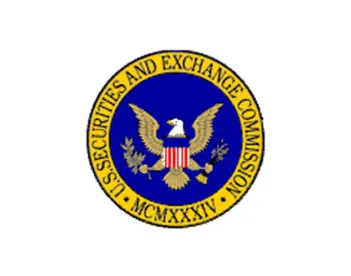But do landmines remain?
On October 26, 2017, the staff of the Securities and Exchange Commission (SEC), following consultation with European authorities, issued three coordinated no-action letters to, in the words of one letter, “address concerns that have arisen in light of the adoption of [Markets in Financial Instruments Directive II (MiFID II)] while preserving choice in maintaining the SEC’s long-standing approach” for the use of client commissions to pay for research that prevails in the United States.
As described in our April 3, post, beginning January 3, 2018, an investment manager subject to MiFID II will no longer be able to receive or retain inducements for conducting business, including nonmonetary benefits such as “research” (other than research that is deemed a “minor nonmonetary benefit”), except under the limited conditions allowed under MiFID II. Rather, an investment manager can receive research without violating MiFID II only if the investment manager pays for the research directly from its own money; with approval from affected clients, from a research payment account (RPA) funded with those clients’ money; or from a combination of the two. MiFID II’s requirements effectively require “unbundling” of payments for execution and research, which has raised many issues for sell-side and buy-side firms, including the three issues addressed in the SEC staff letters. We discussed these issues in greater detail in our April 18, post.
According to the SEC’s press release announcing these actions, the SEC staff relief “provides a path for market participants to comply with the research requirements of MiFID II in a manner that is consistent with the U.S. federal securities laws.”[1] The SEC staff no-action letters provide relief in three key ways:
SIFMA Letter: Relief from Broker-Dealers Being Deemed Advisers When Accepting Cash for Research. The staff of the SEC’s Division of Investment Management (IM) provided temporary relief (for 30 months from MiFID II’s implementation date, or July 3, 2020) stating that it would not recommend that the SEC take enforcement action under the Investment Advisers Act of 1940 (“Advisers Act”) against a broker-dealer that provides research services that constitute investment advice under Section 202(a)(11) of the Advisers Act to an investment manager that is required under MiFID II, either directly or by “contractual obligation,” to pay for the research services from its own money, from an RPA funded with its clients’ money, or from a combination of the two.
In announcing the staff’s actions, SEC Chairman Jay Clayton stated:
Today’s no-action relief was designed with input from a range of market participants to reduce confusion and operational difficulties that might arise in the transition to MiFID II’s research provisions. Staff’s letters take a measured approach in an area where the EU has mandated a change in the scope of accepted practice, and accommodate that change without substantially altering the U.S. regulatory approach. These steps should preserve investor access to research in the near term, during which the Commission can assess the need for any further action. Cooperation with European authorities, including the European Commission, has been instrumental to the SEC’s efforts, and I welcome the additional guidance the EC published today. We look forward to continued dialogue on this and other important issues.
Below we discuss the SEC staff’s no-action letters, as well as some observations on the practical implications of the staff’s positions in these letters and remaining open issues.
SEC Staff’s No-Action Letters
The SEC staff relief addresses three critical issues raised by MiFID II’s unbundling requirements. The relief is an important first step in an effort to minimize disruptions from the clash of MiFID II’s unbundling requirements with the regulatory framework for the use of client commissions to pay for research that prevails in the United States.
SIFMA Letter: Relief from Broker-Dealers Being Deemed Advisers When Accepting Cash for Research
In the SIFMA Letter, the IM staff stated that it would not recommend that the SEC take enforcement action under the Advisers Act against a broker-dealer that provides research services that constitute investment advice under Section 202(a)(11) of the Advisers Act to an investment manager that is required under MiFID II, either directly or by “contractual obligation,” to pay for the research services from its own money, from an RPA funded with its clients’ money, or from a combination of the two. The letter specifically provides that the relief is available for a 30-month period following the January 3, 2018 MiFID II implementation date. While the temporary relief is available, the staff has stated that it “will not consider a Broker-Dealer to be an investment adviser.”
This relief addressed concerns that the receipt of payments for research services directly or indirectly out of an investment manager’s own money or from an RPA as a result of MiFID II, in the words of the SEC staff, “might subject a broker-dealer to the Advisers Act if deemed special compensation” by creating questions about the broker-dealer’s ability to rely on the longstanding broker-dealer exclusion from the definition of “investment adviser” under Section 202(a)(11) of the Advisers Act.[2] The relief covers SEC-registered broker-dealers, as well as non-US broker-dealers (including affiliates of SEC-registered broker-dealers) that are not registered with the SEC in reliance on Exchange Act Rule 15a‑6 and that meet the conditions of paragraph (a)(2) of the rule or the SEC’s position on distribution of research in Exchange Act Release No. 25801 and the adopting release for Rule 15a‑6, as supplemented by subsequent guidance.[3]
-
ICI Letter: Relief Allowing Investment Managers to Aggregate Orders with Differing Research Funding. The IM staff also issued a letter stating that it would not recommend enforcement action under Section 17(d) of the Investment Company Act of 1940 (“Investment Company Act”), Rule 17d-1 thereunder, or Section 206 of the Advisers Act against an investment manager that aggregates orders for the sale or purchase of securities on behalf of its clients where some clients may pay different amounts for research because of MiFID II’s requirements, but each client participating in the aggregated order pays the same (average) price for the security and the “same cost of execution (measured by rate).” This relief was provided in response to a request letter from the Investment Company Institute.
-
SIFMA AMG Letter: Relief Allowing Investment Managers to Use Client-Funded RPAs to Obtain Research. The staff of the SEC’s Division of Trading and Markets (TM) issued a letter stating that it would not recommend enforcement action against an investment manager seeking to operate in reliance on Section 28(e) of the Securities Exchange Act of 1934 (“Exchange Act”) if it pays for research through the use of an RPA and certain conditions are met. This relief was provided in response to a request letter from the Asset Management Group of SIFMA.
A significant limitation on the relief is that it is only available in situations where a broker-dealer receives payments from an investment manager that is domiciled in the European Union, and thus directly subject to MiFID II, or that is domiciled elsewhere and contractually required to comply with MiFID II or equivalent protections. In this regard, a non-EU-domiciled investment manager (“Non-EU Manager”) would be treated as subject to MiFID II by “contractual obligation” where an investment manager directly subject to MiFID II directly or indirectly delegates portfolio management to the Non-EU Manager and the Non-EU Manager is contractually required to comply with MiFID II or equivalent protections in managing accounts under the delegation.[4] This includes situations where an investment manager that is domiciled in the United States, but is indirectly subject to MiFID II by contractual obligation, makes payments for research services to a non-US broker that provides research to the US investment manager in reliance on Exchange Act Rule 15a-6. Notably, the SEC staff’s relief does not extend to a broker-dealer that accepts separate payments for research from a manager not subject to MiFID II directly or via a contractual obligation. This may present practical obstacles to global investment managers seeking to conform their research practices across the entire enterprise even where MiFID II does not apply by law or contractual obligation.
The staff’s assurances are temporary, and will expire 30 months from MiFID II’s implementation date, or July 3, 2020. According to the staff, the temporary period of relief is intended to allow the industry time to review, comprehend, and implement guidance from EU regulators and evaluate any impacts on their business models. During that time, “the staff will continue to monitor and assess the impact of MiFID II’s requirements on the research marketplace and affected participants in order to ascertain whether more tailored or different action, including rulemaking, is necessary and appropriate in the public interest.”[5]
Given the temporary nature of the relief, we applaud the commitment of the SEC and its staff to monitor developments and consider taking further action in this area. In a statement on the relief, Commissioner Kara M. Stein “encourage[d] the staff and the Commission to consider timely notice and comment rulemaking in order to reach the best policy outcome in this area.”[6] Commissioner Stein cautioned more broadly that the staff’s no-action relief does not adequately address concerns in the United States related to transparency and investor protection when investment managers use bundled commission payments to purchase research, such as the following: “When payments for research and trading are combined, do investors know that they are paying for research? Do investors know what they are paying for trading? Do investors know of the potential conflicts of unbundled payments?” Accordingly, lasting relief for broker-dealers could get caught up in a larger dialogue on Section 28(e) of the Exchange Act.
ICI Letter: Relief Allowing Investment Managers to Aggregate Orders with Differing Research Funding
In the ICI Letter, the IM staff stated that it would not recommend enforcement action under Section 17(d) of the Investment Company Act, Rule 17d-1 thereunder, or Section 206 of the Advisers Act if an investment manager aggregates client orders in reliance on the staff’s earlier position taken in a 1995 letter to SMC Capital Inc (SMC Capital). In that letter, which addressed similar legal concerns, the IM staff stated that it would not recommend enforcement action when orders for multiple clients were aggregated for execution where each client received the same price and paid the same commission. The latest letter contemplates that some clients may pay different amounts for research because of the MiFID II requirements, but each client participating in the aggregated order pays the same (average) price for the security and the “same cost of execution (measured by rate).” The relief is conditioned on representations made in the incoming letter to the staff, including three specific representations recited in the ICI Letter that investment managers will adopt policies and procedures reasonably designed to ensure the following:
-
Each client in an aggregated order pays the average price for the security and the same cost of execution (measured by rate).
-
The payment for research in connection with the aggregated order will be consistent with each applicable jurisdiction’s regulatory requirements and disclosures to the client.
-
Subsequent allocation of such trade will conform to the adviser’s allocation statement (as described in the request letter) and/or the adviser’s allocation procedures.[7]
This relief addressed concerns that prior IM no-action positions on the aggregation of client trades might not be available when placing trades for multiple clients that have a combination of commission sharing arrangements (CSAs) (where research is purchased through bundled commission payments) and RPA arrangements.[8] These earlier letters included representations that transaction costs would be shared pro rata based on each client’s participation in the trade. As a result of MiFID II’s requirements, an investment manager might have, and seek to include in an aggregated order, clients with a combination of research arrangements, including clients funding research through commissions via CSAs, clients funding research by agreeing to fund investment manager RPAs (where payments are unbundled), and clients whose investment manager is paying for research out of its own resources. If the investment manager cannot aggregate those orders because those clients might not pay a pro rata share of all costs, including commissions, the investment manager might need to place competing trades for the same security, which could result in worse execution for clients overall and might even benefit one set of clients at the expense of others.
The IM staff addressed these concerns by substituting the requirement in the SMC Capital letter that each client in an aggregated order pay a pro rata share of all costs with the requirement that each client in an aggregated order pays the same (average) price for the security and the “same cost of execution (measured by rate).” While logical in many ways, the requirement that all clients participating in an aggregated order pay the same execution rate (e.g., cents or bps per share) even where the clients are not similarly situated may prove problematic in practice. For example, an aggregated order might include clients that have special commission arrangements including those not set or negotiated by the investment manager, such as retail wrap fee accounts and institutional client-directed brokerage arrangements—the execution rates for which may vary. Accordingly, the staff’s position may nonetheless leave open the issue of whether trades for various accounts may be aggregated, even though a manager might reasonably determine that improved price through inclusion in the larger aggregated trade may have a greater influence on overall execution quality than differences in the nominal commission rates.
Importantly, in a footnote, the IM staff stated that “this position does not apply to an investment adviser that is not subject to MiFID II (either directly or contractually).” Although this reflects the IM staff’s efforts to align this relief to the other staff no-action letters, it is not immediately clear why this limitation is necessary given the safeguards outlined in the ICI Letter. Moreover, for a global investment manager organization that centralizes trading activities across multiple investment managers, some of which are subject to MiFID and some that are not, we expect that this limitation should not be construed literally to preclude central order aggregation otherwise complying with the terms of the ICI Letter. A more narrow reading would seem contrary to the purpose of the IM staff relief, but that may be a matter for IM staff clarification.
SIFMA AMG Letter: Relief Allowing Investment Managers to Use Client-Funded RPAs to Obtain Research
In the SIFMA AMG Letter, the TM staff stated that it would not recommend enforcement action against an investment manager seeking to operate in reliance on Section 28(e) of the Exchange Act if it pays for research through the use of an RPA if four conditions are met:
-
The investment manager makes payments to the executing broker-dealer out of client assets for research alongside payments to that executing broker-dealer for execution.
-
The research payments are for research services that are eligible for the safe harbor under Section 28(e).
-
The executing broker effects the securities transaction for purposes of Section 28(e).
-
The executing broker is legally obligated by contract with the investment manager to pay for research through the RPA in connection with a client commission arrangement.
This relief addressed concerns that investment managers using RPA mechanisms to pay for research would not qualify for Section 28(e) because research payments that are charged alongside execution payments might not be deemed “commissions” for purposes of Section 28(e) and the research services might not be viewed as “provided” by the executing broker. If Section 28(e) were not available for RPA funding arrangements, investment managers might face issues under the Investment Company Act or the Employee Retirement Income Security Act of 1974 such as using research purchased with one client’s assets to benefit other clients (i.e., cross-subsidization), for which disclosure alone might not suffice and other exemptions might not be available.
|
Limits on SEC Staff Relief |
|||
|
No-Action Letter |
Type of Relief |
Investment Managers Covered |
Duration of Relief |
|
SIFMA Letter |
Relief from Broker-Dealers Being Deemed Advisers When Accepting Cash for Research |
Only managers subject to MiFID II directly or by contractual obligation |
30 months from MiFID II effectiveness, or July 3, 2020 |
|
ICI Letter |
Relief Allowing Investment Managers to Aggregate Orders with Differing Research Funding |
Only managers subject to MiFID II directly or by contractual obligation |
No specific limitation |
|
SIFMA AMG Letter |
Relief Allowing Investment Managers to Use Client-Funded RPAs to Obtain Research |
No specific limitation |
No specific limitation |
Observations and Takeaways
As mentioned above, the coordinated actions by the SEC and its staff are an important first step in grappling with the complicated issues posed by the effects of the MiFID II changes in global capital markets, including those in the United States.
Uncertainties Remain in Law and Practice. Even with the steps taken by the SEC and its staff, there remain disconnects between law and practice in the United States and those unfolding in Europe, especially as commercial arrangements relating to the financing of research are increasingly in flux. Adding to the static and confusion is the fact that some EU member states have been slow to identify how they will transpose MiFID II into domestic law.[9]
Acceptance of MiFID II Framework Is Uncertain in the United States. It remains to be seen whether the actions taken in Europe will gain traction in the United States in the near term, especially given the limits imposed by the SEC staff no-action relief on broker payments and order aggregation to investment managers subject to MiFID II directly or by contractual obligation. Possible change in the US market must occur against a backdrop that the “bundling” of execution and research is the longstanding norm—and the fact that the framework for financing research with client commissions is established as a matter of statute and has preemptive effect across other bodies of law. Indeed, Section 28(e) of the Exchange Act is a pillar of the framework set by the SEC and Congress to create a vibrant market in research for the benefit of the US capital markets and to support capital formation by US companies. Although the press has issued a flurry of coverage on investment managers’ decisions on how to pay for research, some of the reporting has not been entirely accurate, particularly on the extent to which given investment managers will pay for research with their own money (e.g., globally, within Europe, for pooled vehicles not covered by MiFID II (subject to member state gold plating), for particular strategies, and so on) rather than through an RPA. Indeed, the limits set by the SEC staff no-action letters may create further impetus for global investment managers to “ring fence” payments for research out of their own profits and otherwise to use CSA and RPA arrangements where possible.
Possible Refocus on CSAs with Fee Offsets. What has been less noticed in the debate about “hard dollar” compensation is the option of an investment manager to use client commissions to obtain research in accordance with Section 28(e) while rebating affected clients the estimated cost of the research either entirely or in excess of an agreed-to budgeted amount (such as through a fee offset). This is something that some fund managers have been doing, and it should preserve the availability of the Section 28(e) safe harbor, avoid the adviser status issues for broker-dealers, and address the issue underpinning the relief on Section 17(d) provided in the ICI Letter, among other issues.
Importance of Broad Policy Review. While the recent SEC staff relief is key to addressing immediate issues confronting buy-side and sell-side firms, going forward, it will be incumbent for the SEC (and other regulators) to evaluate the larger macro effects of these changes. Such a review should include consideration of possible effects on the vibrancy of the US research market and extent of coverage of issuers of different sizes, as well as the breadth and depth of liquidity in the US capital markets. As widely reported, the changes triggered by MiFID II are expected to have substantial detrimental effects on the research marketplace, with McKinsey & Co. estimating that the research business will downsize by about $1.2 billion.[10] Some are anticipating that consolidation or reduction in research coverage could have a disproportionate impact on smaller issuers, which could affect decisions like whether those issuers stay private or undertake initial public offerings.[11] Analysts are likewise questioning whether the de-tethering of research from commissions will result in greater price pressure on commissions and markups and, as a result, squeeze margins for broker-dealers, including those in niche or regional markets.[12] Unquestionably, the paradigm is changing in ways that make it unclear whether such changes will be constructive, destructive, or a combination of both. Ultimately, it is critical that there be clear guidelines on permissible conduct and arrangements so that US market participants can navigate these changes and pursue the opportunities they present.
Harmonization While Preserving Choice. The challenge for the SEC will be to conduct a thorough and thoughtful analysis of emerging practices and issues and endeavor to rationalize the US approach to align, as appropriate, with differing standards among global jurisdictions, while at the same time preserving choice in maintaining the SEC’s longstanding approach for the use of client commissions to pay for research. This harmonization might include “modernizing” application of the Section 28(e) safe harbor to align with certain aspects of MiFID II. This might include formally (i.e., through Commission action) interpreting the concept of “commission” and the “provided by” concept to encompass RPA mechanisms. The SEC might also build on its 2001 interpretation of the term “commission” in Section 28(e), which focused on how the transparency of charges in certain riskless principal transactions would allow investment managers to make the necessary reasonability determination (i.e., the requirement on a fiduciary to determine that the cost of any added commission is reasonable in relation to the value of the research and brokerage services) to formally recognize that RPA payments similarly create greater transparency and should be deemed commissions.[13] All of this could preserve choice under the framework of the Section 28(e) safe harbor, including the core concept articulated by the SEC in 1972 that “the providing of investment research is a fundamental element of the brokerage function for which the bona fide expenditure of the beneficiary’s funds is completely appropriate, whether in the form of higher commissions or outright cash payments.”[14] Any reenvisioned approach by the SEC should be agnostic as to who pays for research, letting that matter be a function of commercial negotiation between investment managers and their clients, so long as there is an appropriate level of transparency so the judgments on the matter can be informed.
Conclusion
The SEC staff’s no-action letters are important steps in addressing some of the more pressing issues raised by the inconsistency between the MiFID II requirements as to research and the historical US regulatory approach to research and soft dollars. Yet, significant legal issues and practical challenges remain for investment managers and broker-dealers that will need to navigate compliance with both the US and the EU regimes. And significant opportunities remain, for the SEC and other US and EU regulators, to take further measures to harmonize, or at least to reconcile, these divergent regimes.
[1] SEC Press Release, SEC Announces Measures to Facilitate Cross-Border Implementation of the European Union’s MiFID II’s Research Provisions (Oct. 26, 2017).
[2] See also Letter from SEC Chairman Jay Clayton to US Senator Thom Tillis (R-NC) (Sept. 14, 2017).
[3] See Registration Requirements for Foreign Broker-Dealers, Sec. Exch. Act Rel. No. 27017 (July 11, 1989), 54 Fed. Reg. 30,013 (July 18, 1989) (adopting Rule 15a-6).
[4] See Letter from Stephen Hanks, Financial Conduct Authority, to Jiri Krol, Deputy CEO, Alternative Investment Management Ass’n (July 19, 2017). Notably, although the request letter sought relief for dealings with investment managers domiciled in the United Kingdom following Brexit, the SIFMA Letter did not address the issue. The UK Financial Conduct Authority (FCA) has announced its intention of transposing MiFID II into UK law, and is anticipated to impose the MiFID II unbundling requirements following Brexit.
[5] SEC Press Release, SEC Announces Measures to Facilitate Cross-Border Implementation of the European Union’s MiFID II’s Research Provisions (Oct. 26, 2017).
[6] SEC Public Statement of Commissioner Kara M. Stein, Statement on the Staff’s No-Action Relief Regarding MiFID II (Oct. 26, 2017).
[7] The relief is conditioned on other representations made in the incoming letter, including the following:
-
The adviser will prepare, before entering an aggregated order, an Allocation Statement.
-
Each account that participates in an aggregated order will participate at the average security price for all the adviser’s transactions in that security in accordance with the adviser’s Allocation Statement and/or trade allocation policy, with execution costs shared pro rata based on participation in the transaction.
-
All trades will be subject to the adviser’s duty of best execution, and total transaction costs for each client will continue to be subject to the adviser’s good-faith determination that the transaction costs are reasonable in relation to the value of the execution and research services.
-
The adviser will adopt and maintain policies and procedures to address how orders will be aggregated and allocated among participating accounts. Such policies and procedures will be designed to ensure that all orders are aggregated and allocated in a manner that is consistent with the adviser’s fiduciary duty and its representations and disclosures to clients.
-
If the aggregated order is filled in its entirety, it will be allocated among the accounts in accordance with the Allocation Statement and/or policies and procedures; if the order is partially filled, it will be allocated pro rata based on the Allocation Statement and/or policies and procedures. Notwithstanding the foregoing, the order may be allocated on a basis different from a pro rata allocation if all accounts of clients whose orders are allocated receive fair and equitable treatment and the reason for such different allocation is either specified by the policies and procedures or approved in writing by the adviser’s compliance department no later than the next trading day.
-
The adviser’s trade aggregation policies and procedures will include periodic review by one or more oversight committees that include the adviser’s chief compliance officer or designee (or similar control function, such as risk), designed to ensure that they are adequate to prevent any client from being systematically disadvantaged as a result of the aggregated orders and the subsequent allocation thereof. In the case of registered investment companies (RICs), compliance with these policies and procedures would be reviewed at least annually by the RIC’s board of trustees as part of, or in addition to, the board’s general oversight of the adviser’s allocation of brokerage and its use and acquisition of research (see Commission Guidance Regarding the Duties and Responsibilities of Investment Company Boards of Directors with Respect to Investment Manager Portfolio Trading Practices, Sec. Exch. Act Rel. No. 58264 (July 30, 2008) (proposed but not adopted interpretation)).
-
Policies for aggregation of transactions will be fully disclosed in the adviser’s Form ADV and the RIC’s statement of additional information.
-
The adviser’s books and records will separately reflect, for each account of a client whose orders are aggregated, the securities held by, and bought and sold for, each account.
[8] See SMC Capital, Inc., SEC Staff No-Action Letter (pub. avail. Sept. 5, 1995); see also Mass. Mutual Life Ins. Co., SEC Staff No-Action Letter (pub. avail. June 7, 2000); Pretzel & Stouffer, SEC Staff No-Action Letter (Dec. 1, 1995).
[9] See, e.g., Mark Taylor, EU Hits 19 States with Infringement Probes for MiFID Failings, Law360 (Oct. 18, 2017).
[10] See Stephen Morris, Banks to Cut $1.2 Billion in Research Spending, McKinsey Says, Bloomberg (June 21, 2017).
[11] See Cowen & Co., Quick Hit: 5 Things We Think We Know About the SEC and MiFID II (Oct. 18, 2017).
[12] See UBS Global Research, Global Financial Services, MiFID II’s Domino Effect: Headwinds Likely to Impact Markets Beyond Europe and to Last Years (Oct. 2, 2017).
[13] See Commission Guidance on the Scope of Section 28(e) of the Exchange Act, Sec. Exch. Act Rel. No. 45194 (Dec. 27, 2001), 67 Fed. Reg. 6 (Jan. 2, 2002).
[14] See SEC, Future Structure of the Securities Markets, 37 Fed. Reg. 5286, 5290 (Mar. 14, 1972).








 />i
/>i

